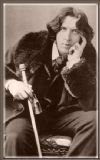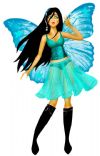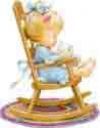|
ESL Forum:
Techniques and methods
in Language Teaching
Games, activities
and teaching ideas
Grammar and
Linguistics
Teaching material
Concerning
worksheets
Concerning
powerpoints
Concerning online
exercises
Make suggestions,
report errors
Ask for help
Message board
|
ESL forum >
Teaching material > Facts About the English Language
Facts About the English Language
|

Dodat

|
Facts About the English Language
|
|
Facts About the English Language
(1) The word "news" is not the plural of the word �new. � The word "NEWS" came from the first letters of the words North, East, West and South. This was because information was being gathered from all different directions.
(2) The idiom "it rains cats and dogs" originated in 17th Century England. During heavy downpours of rain, many of these poor animals unfortunately drowned and their bodies would be seen floating in the rain torrents that raced through the streets. The situation gave the appearance that it had literally rained "cats and dogs" and led to the current expression.
(3) The saying "all roads lead to Rome," goes back to the fact that the ancient Romans built an excellent system of roads. This saying means that no matter which road one starts a journey on, he will finally reach Rome if he keeps on traveling. The popular saying also means that all ways or methods of doing something end in the same result: No method is better than another.
(4) The origin of the word "quisling" comes from the name of Major Vidkun Quisling, a Norwegian who collaborated with the Germans during their occupation of Norway. The word "quisling" now means "traitor."
(5) The word "set" has the largest number of definitions in the English Language: (192 definitions according to the Oxford English Dictionary
(6) The study of insects is called entomology, while the study of word origins is called etymology.
(7) "Rhythms" is the longest English word without the normal vowels, a, e, i, o, or u.
(8) No word in the English language rhymes with the words "month, orange, silver, and purple."
(9) A bibliophile is a collector of rare books. A bibliopole is a seller of rare books.
(10) A hamlet is a village without a church and a town is not a city until it has a cathedral.
(11) "Bookkeeper" and "bookkeeping" are the only words in the English language with three consecutive double letters.
(12) "Underground" is the only word in the English language that begins and ends with the letters "und."
(13) The word "queue" is the only word in the English language that is still pronounced the same way when the last four letters are removed.
(14) The word "queueing" is the only English word with five consecutive vowels.
(15) The only three words in the English language that begin with the letters "DW" are Dwarf, Dwell, and Dwindle.
(16) There are only four words in the English language which end in "-dous": tremendous, horrendous, stupendous, and hazardous.
|
19 Apr 2009
|
|
|
|

carinaluc

|
|
Here is another one:
Strengths (nine letters long) is the longest word in the English language with only one vowel.
Hugs from Buenos Aires
Carina |
19 Apr 2009
|
|
|

temainzer

|
I enjoyed reading these facts about English language! Interesting! Thanks for sharing, Dodat.
|
19 Apr 2009
|
|
|

Damielle

|
|
Great!!! I have already copied and pasted this material to work with it in class. Do you have the link?
I love this type of posts  |
19 Apr 2009
|
|
|

gilorit

|
|
Thank you for the interesting facts ;-)
Orit |
19 Apr 2009
|
|
|

Olindalima ( F )

|

I love this stuff, mainly the one about " NEWS" I had no idea. thanks4sharing.
By the way, does any of you know where the name of the British flag ( union Jack) comes from?
I am open to other explanations different from the one I know.
|
19 Apr 2009
|
|
|
|
|

pauguzman

|
|
I love this kind of curiosities!! thanks for your contribution
PAULA |
19 Apr 2009
|
|
|

alisonz

|
|
Great stuff, will be using the real meaning of NEWS tomorrow.
|
19 Apr 2009
|
|
|